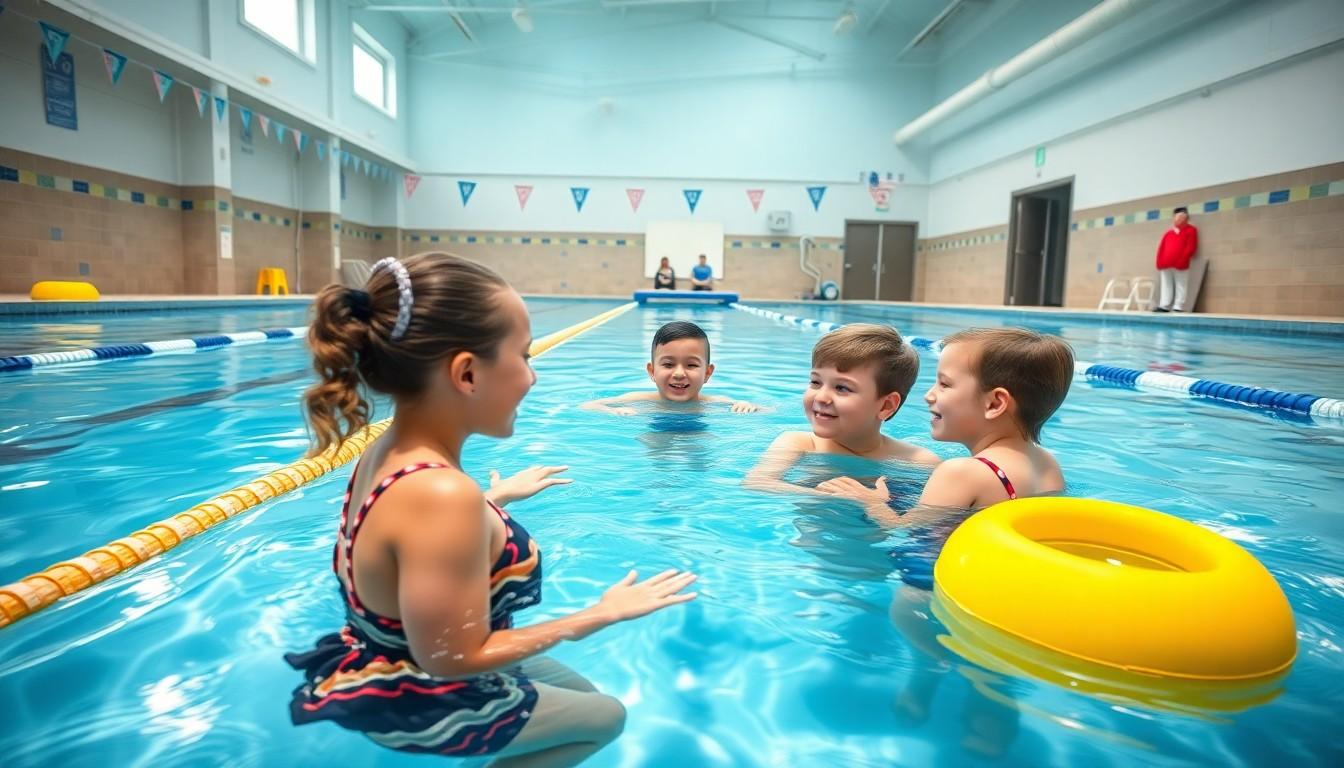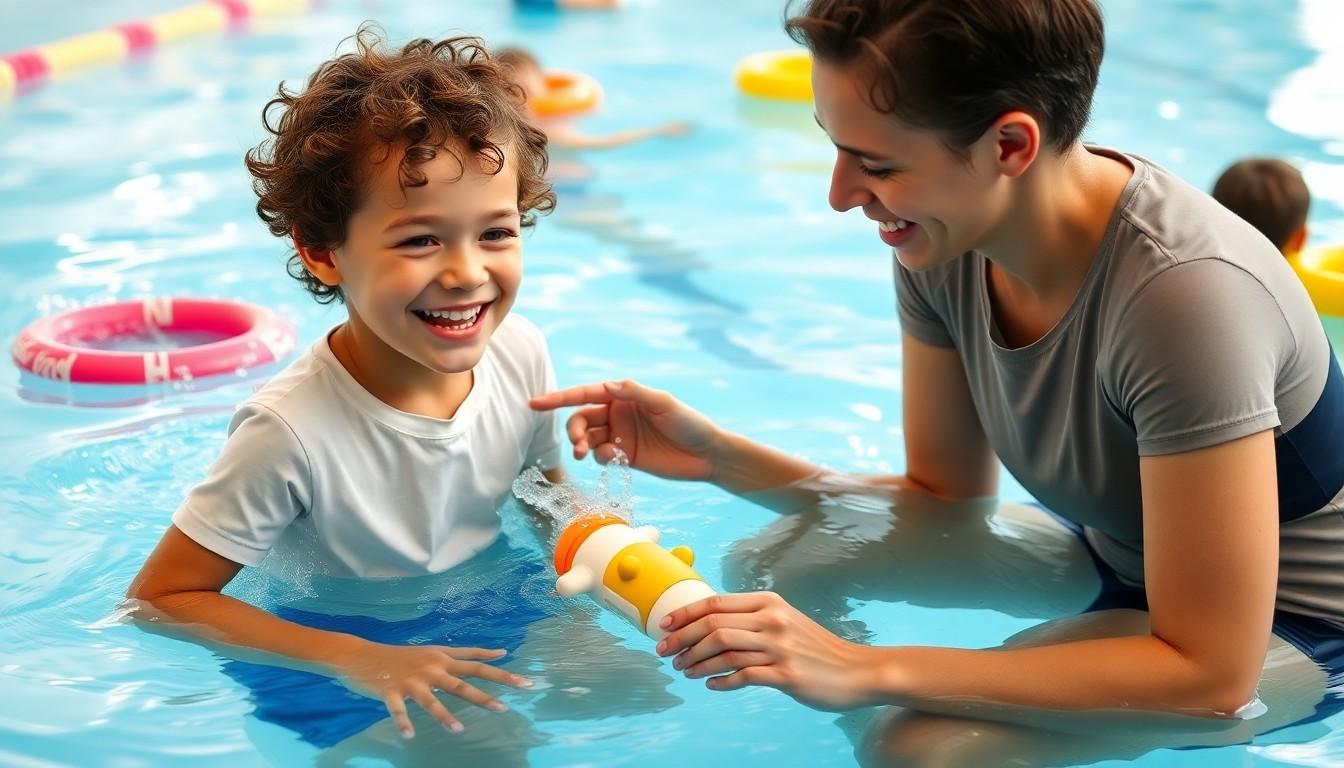Finding the right swimming lessons for individuals with autism can feel like searching for a needle in a haystack. But don’t worry; the perfect splash awaits just around the corner! Swimming isn’t just a fun way to beat the heat; it’s a fantastic opportunity for growth, confidence, and social interaction.
Table of Contents
ToggleBenefits of Autism Swimming Lessons
Swimming lessons offer various advantages for individuals with autism, enhancing their overall well-being and development. These lessons support essential skills in both physical health and emotional/social growth.
Physical Health Benefits
Engaging in swimming lessons improves physical fitness and coordination. Individuals build strength, increasing overall endurance and flexibility. Swimming serves as a low-impact exercise, promoting cardiovascular health. Studies indicate that regular aquatic activity aids in weight management and muscle tone improvement. Participants also experience enhanced motor skills, which translate into daily activities and other sports. Improved balance and coordination contribute to their independence.
Emotional and Social Skills Development
Swimming lessons foster emotional regulation and boost self-esteem. Positive reinforcement from instructors encourages individuals to overcome challenges, enhancing their confidence. Additionally, group swimming activities facilitate social interactions with peers. Conversations arise naturally, promoting communication skills and teamwork. Developing friendships in the water sets the foundation for meaningful relationships outside the pool. Such interactions can significantly reduce feelings of isolation, enriching their overall social experience.
Finding Autism Swimming Lessons Near You

Finding suitable autism swimming lessons involves research, community recommendations, and understanding specific needs. Start by locating nearby facilities that offer specialized programs for individuals with autism.
Researching Local Aquatic Centers
Aquatic centers often provide tailored swimming classes for individuals with autism. Check their websites to see if they showcase inclusive programs or specialized instructors. Verify pool access, lesson sizes, and sensory-friendly environments. Some facilities host open houses, allowing families to visit and ask questions directly. Reviewing online ratings and local community forums might reveal firsthand experiences. Prioritize centers that focus on safety, relaxation, and skill development.
Recommendations from Therapists and Parents
Therapists and parents can suggest effective swimming programs based on their experiences. Networking within local support groups can lead to valuable insights. Many families share their recommendations through social media, making it easier to find trusted resources. Utilize platforms like Facebook or Meetup to connect with others who prioritize aquatic skills. Recommendations often highlight instructors who understand sensory needs and communication styles. Consulting with professionals might also lead to personalized suggestions that align with individual requirements.
Types of Programs Available
Various programs cater to the unique needs of individuals with autism in swimming lessons. Each program type has its benefits, focusing on skills development and comfort in the water.
Individual vs. Group Lessons
Individual lessons offer personalized attention, crucial for building confidence and addressing specific goals. They allow instructors to tailor sessions based on the individual’s pace and learning style. Group lessons, on the other hand, promote social interaction among peers. This setting helps develop teamwork and communication skills. Some individuals thrive in a structured environment, making group settings beneficial for those ready for group dynamics. Both options provide unique advantages, allowing families to choose based on their child’s needs and preferences.
Adaptive Swimming Techniques
Adaptive swimming techniques adapt to individual capabilities, ensuring a safe and enjoyable experience. Techniques include using flotation devices for support and practicing breathing exercises to build comfort. Instructors trained in adaptive methods focus on enhancing each swimmer’s strengths and addressing challenges. Visual cues and positive reinforcement help individuals understand movements and improve skills. Safety remains a priority, with strategies implemented to ensure a secure learning environment. These adaptive approaches enhance overall learning and create a positive atmosphere for personal growth.
Preparing for Swim Lessons
Preparing for swim lessons involves gathering the right items and setting expectations for a successful experience. Families should pay attention to specific needs to ensure comfort and enjoyment during lessons.
What to Bring to the First Lesson
Swimwear appropriate for the water environment is essential. It includes swimsuits, rash guards, or swim trunks. A towel offers a quick way to dry off post-lesson. Parents might consider packing swim goggles, which can enhance underwater visibility and promote confidence. Sunscreen, especially for outdoor sessions, protects the skin from UV rays. A water bottle helps maintain hydration throughout lessons. Additionally, bringing a favorite toy or comfort item can ease anxiety and provide familiar support.
Tips for a Successful Experience
Prioritizing communication with instructors enhances the overall experience. Parents should share specific needs and preferences to facilitate tailored instruction. Themes of consistency play an important role; attending lessons at the same time weekly fosters routine. Encouragement can make a significant difference; praising efforts builds self-esteem and motivation. Social interactions often improve with matching participants of similar skill levels and interests. Taking breaks during lessons allows individuals to regroup and recharge. Preparing for sensory experiences in the pool environment makes transitions smoother, contributing to a successful lesson overall.
Conclusion
Finding the right autism swimming lessons can significantly enhance the lives of individuals with autism. By focusing on tailored programs that cater to unique needs, families can unlock the many benefits of swimming. This activity not only promotes physical health but also nurtures emotional and social development.
With the right preparation and support, swim lessons can become a rewarding experience. Families should take the time to research local options and connect with the community to discover programs that truly make a difference. Embracing this journey can lead to newfound confidence and joy in the water.

